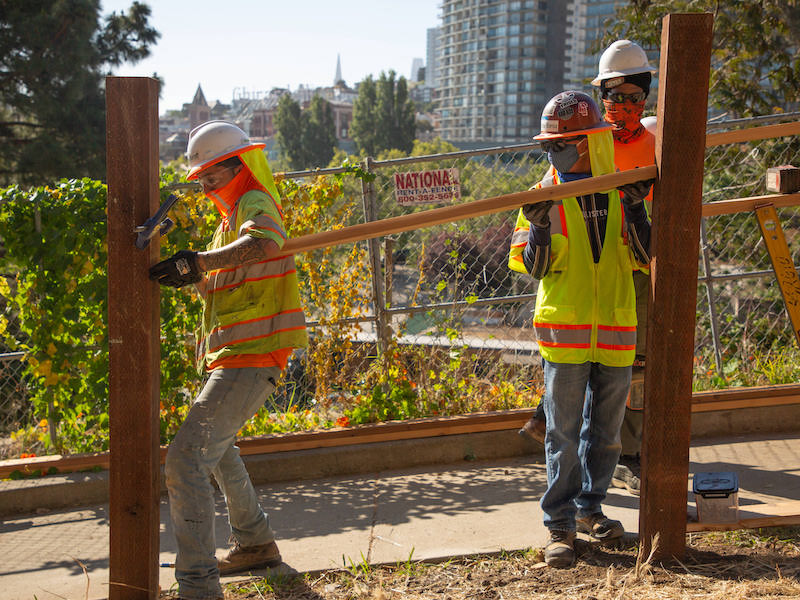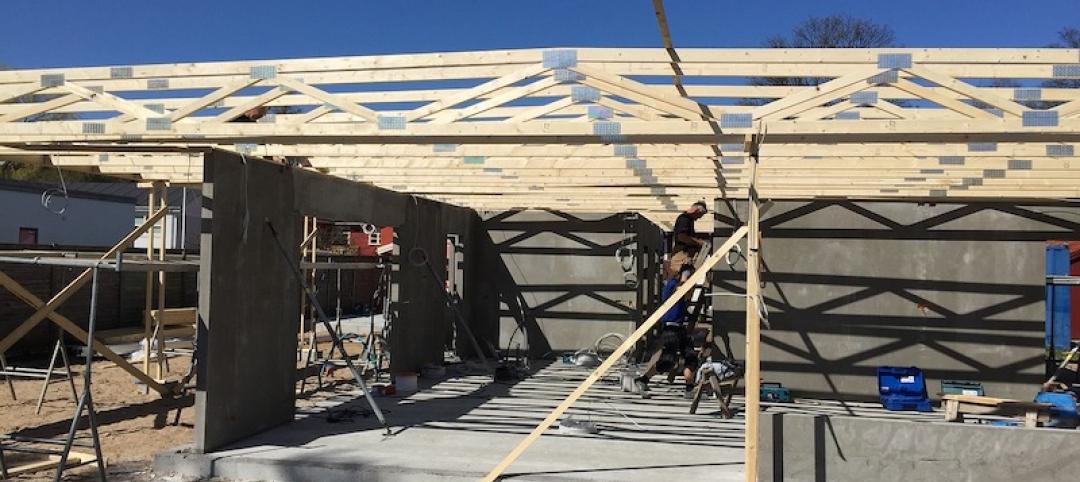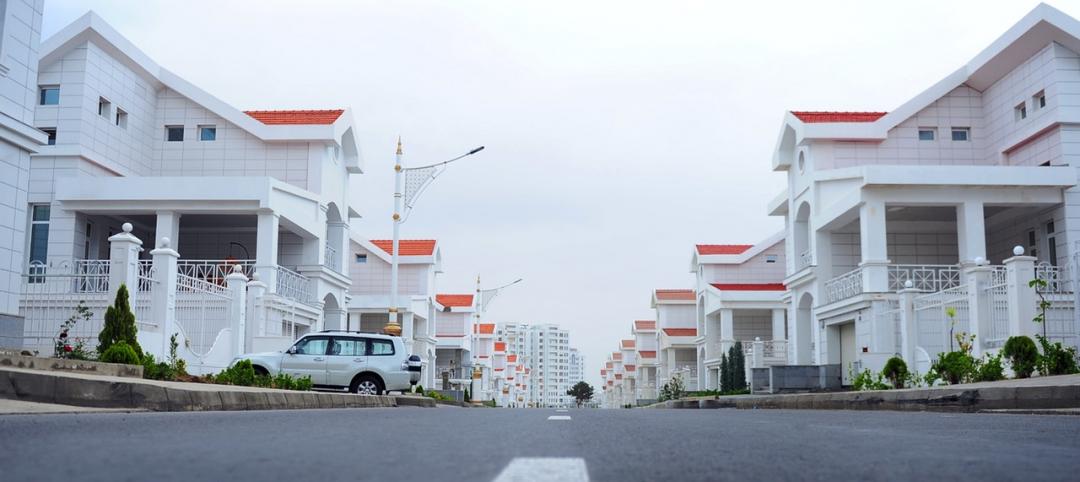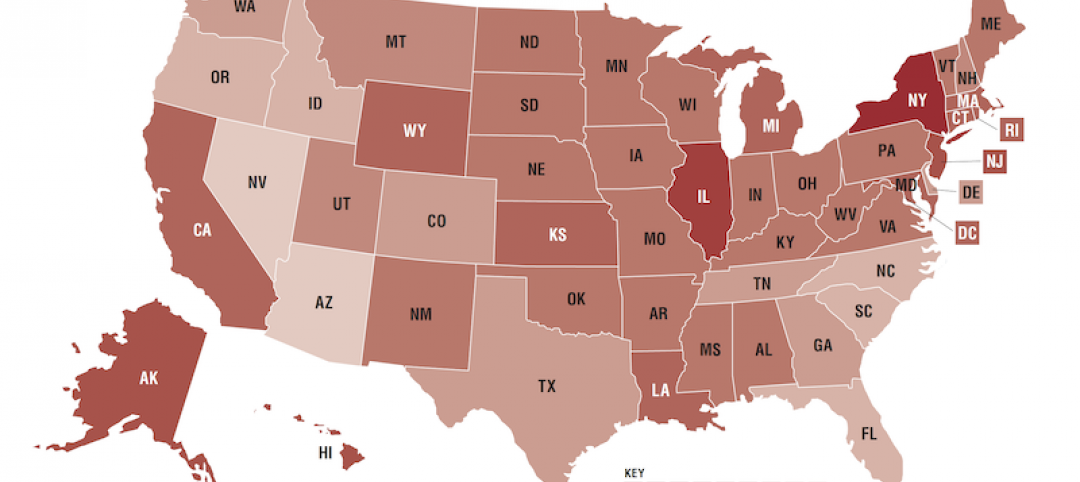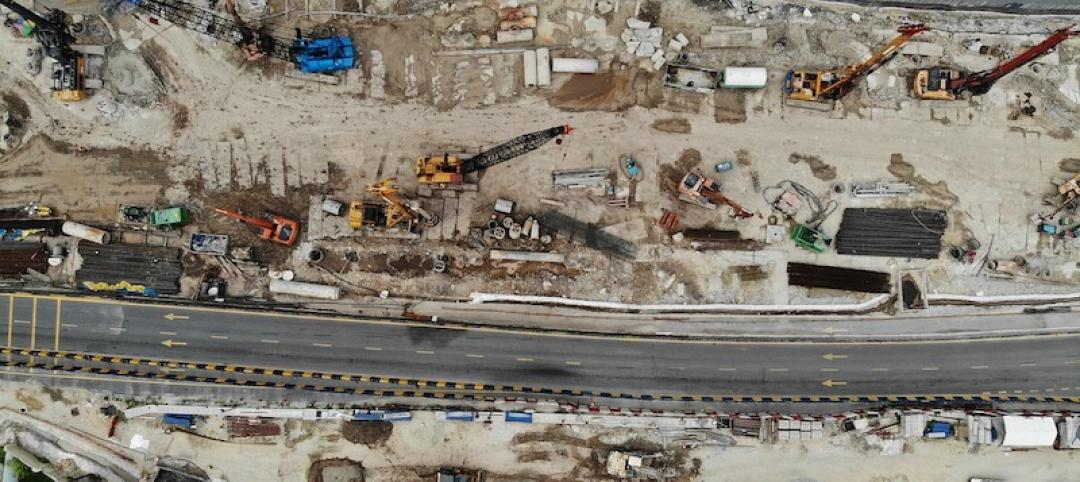Construction employment in August remained below the levels reached before the pre-pandemic peak in February 2020 in 39 states, according to an analysis by the Associated General Contractors of America of government employment data released today. Association officials urged the House of Representatives to quickly pass the bipartisan infrastructure bill to avoid further cutbacks in construction activity and jobs.
“Construction employment slipped or stagnated from July to August in half the states as the delta variant of COVID-19 affected workers and caused some owners to delay projects,” said Ken Simonson, the association’s chief economist. “In addition, more than half of the respondents in our latest workforce survey reported experiencing projects that have been canceled, postponed, or scaled back.”
From February 2020—the month before the pandemic caused project shutdowns and cancellations—to last month, construction employment increased in only 11 states and the District of Columbia. Texas shed the most construction jobs over the period (-56,700 jobs or -7.3%), followed by New York (-50,700 jobs, -12.4%) and California (-34,900 jobs, -3.8%). Wyoming recorded the largest percentage loss (-16.6%, -3,800 jobs), followed by Louisiana (-14.4%, -19,700 jobs) and New York.
Utah added the most construction jobs since February 2020 (7,400 jobs, 6.5%), followed by North Carolina (4,500, 1.9%), Idaho (3,700 jobs, 6.7%), and South Carolina (3,700 jobs, 3.5%). The largest percentage gains were in South Dakota (7.1%, 1,700 jobs), followed by Idaho and Utah.
From July to August construction employment decreased in 22 states, increased in 25 states and D.C., and was unchanged in three states. The largest decline over the month occurred in Kansas, which lost 2,400 construction jobs or 3.7%. Georgia lost the second-most jobs (-2,300 jobs, -1.1%). The second-largest percentage decline since July, -2.1%, occurred in Alabama (-1,900 jobs) and Wyoming (-400 jobs).
Nevada added the most construction jobs between July and August (3,000 jobs, 3.3%), followed by New York (2,600 jobs, 0.7%) and Tennessee (2,600 jobs, 2.0%). New Hampshire had the largest percentage gain (4.4%, 1,200 jobs), followed by Nevada and Oklahoma (2.3%, 1,800 jobs).
Association officials warned that construction employment was being impacted in many parts of the country because of supply chain challenges and growing market uncertainty caused by the resurgent Delta variant. They said new federal infrastructure investments would provide a needed boost in demand and help put more people to work in construction careers.
“It is vital that Congress complete work on the bipartisan infrastructure bill before the end of month,” said Stephen E. Sandherr, the association’s chief executive officer. “Otherwise, funding will stop for much-needed highway and other public works projects and many more construction workers will lose their jobs.”
View state February 2020-August 2021 data and rankings, 1-month rankings. View AGC’s survey results.
Related Stories
Market Data | Nov 14, 2019
Construction input prices unchanged in October
Nonresidential construction input prices fell 0.1% for the month and are down 2.0% compared to the same time last year.
Multifamily Housing | Nov 7, 2019
Multifamily construction market remains strong heading into 2020
Fewer than one in 10 AEC firms doing multifamily work reported a decrease in proposal activity in Q3 2019, according to a PSMJ report.
Market Data | Nov 5, 2019
Construction and real estate industry deals in September 2019 total $21.7bn globally
In terms of number of deals, the sector saw a drop of 4.4% over the last 12-month average.
Market Data | Nov 4, 2019
Nonresidential construction spending rebounds slightly in September
Private nonresidential spending fell 0.3% on a monthly basis and is down 5.7% compared to the same time last year.
Market Data | Nov 1, 2019
GDP growth expands despite reduction in nonresident investment
The annual rate for nonresidential fixed investment in structures declined 15.3% in the third quarter.
Market Data | Oct 24, 2019
Architecture Billings Index downturn moderates as challenging conditions continue
The Architecture Billings Index (ABI) score in September is 49.7.
Market Data | Oct 23, 2019
ABC’s Construction Backlog Indicator rebounds in August
The primary issue for most contractors is not a lack of demand, but an ongoing and worsening shortage of skilled workers available to meet contractual requirements.
Multifamily Housing | Oct 16, 2019
A new study wonders how many retiring adults will be able to afford housing
Harvard’s Joint Center for Housing Studies focuses on growing income disparities among people 50 or older.
Market Data | Oct 9, 2019
Two ULI reports foresee a solid real estate market through 2021
Market watchers, though, caution about a “surfeit” of investment creating a bubble.
Market Data | Oct 4, 2019
Global construction output growth will decline to 2.7% in 2019
It will be the slowest pace of growth in a decade, according to GlobalData.


